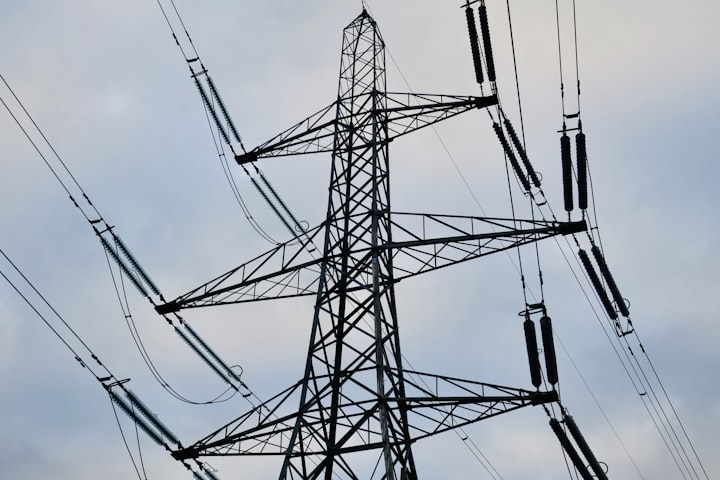National Grid Collapse
National Outage

The collapse of the Nigerian national grid in 2024 was not an isolated incident but rather the culmination of systemic issues that have plagued the country's energy sector for decades. Several factors contributed to the collapse, including:
Aging Infrastructure: Much of Nigeria's power infrastructure is outdated and in urgent need of modernization. Many power plants and transmission lines have exceeded their intended lifespan, leading to increased susceptibility to breakdowns and failures.
Underinvestment: Chronic underinvestment in the energy sector has resulted in a lack of maintenance and upgrades to critical infrastructure. Insufficient funding has hampered efforts to expand capacity and improve the reliability of the national grid.
Poor Maintenance Practices: Inadequate maintenance practices, including irregular servicing of power plants and transmission equipment, have contributed to the deterioration of infrastructure and increased the likelihood of system failures.
Overdependence on Gas: Nigeria's power generation relies heavily on natural gas, with gas-fired power plants accounting for the majority of electricity production. Disruptions in gas supply, whether due to technical issues or security concerns, can have cascading effects on the entire energy system.
Lack of Diversification: The overreliance on gas for power generation underscores the lack of diversification in Nigeria's energy mix. A more diversified energy portfolio, including investments in renewables such as solar and wind, could enhance the resilience of the grid and reduce vulnerability to supply disruptions.
Consequences of the Grid Collapse:
The national grid failure in Nigeria has far-reaching effects, aggravating pre-existing social issues and affecting numerous economic sectors. Among the principal repercussions are:
Economic Disruption: The power outage caused major economic losses by interfering with commercial, industrial, and essential service operations. Production halts cost businesses money, and they also caused delays for customers in receiving necessities like healthcare and transportation.
Social Impacts: Millions of Nigerians experienced everyday disruptions due to the power outage, which affected their access to necessities including water, electricity, and communication services. Additionally, the absence of power made social injustices worse, disproportionately harming weaker groups like the impoverished and marginalized communities.
Environmental Concerns: Using fossil fuels to generate electricity exacerbates climate change and adds to environmental damage.
National Security Risks: The collapse of the national grid raised concerns about national security, particularly in regions already grappling with insecurity and conflict. Power outages can undermine stability and exacerbate social tensions, highlighting the interconnectedness between energy security and broader security concerns.
Pathways to Resilience:
In the aftermath of the grid collapse, addressing the underlying vulnerabilities of Nigeria's energy sector and enhancing resilience became imperative. Several pathways can be pursued to build a more resilient energy system:
Investment in Infrastructure: Increasing investment in the modernization and expansion of power infrastructure is essential to enhance the resilience of the national grid. This includes upgrading aging power plants, expanding transmission and distribution networks, and deploying advanced technologies for monitoring and maintenance.
Diversification of Energy Sources: Diversifying Nigeria's energy mix by investing in renewable energy sources such as solar, wind, and hydropower can reduce dependency on fossil fuels and enhance energy security. Renewable energy projects offer sustainable and environmentally friendly alternatives that can bolster the resilience of the grid.
Improving Governance and Regulation: Strengthening governance and regulatory frameworks is critical to addressing systemic challenges in the energy sector. This includes enhancing transparency, accountability, and efficiency in the management of energy resources and infrastructure.
Enhancing Grid Management and Planning: Improving grid management and planning processes can help anticipate and mitigate potential risks to the system. This includes implementing robust monitoring and control systems, conducting regular risk assessments, and developing contingency plans for emergencies.
Promoting Energy Efficiency and Conservation: Investing in energy efficiency measures and promoting conservation can help reduce demand on the grid and enhance overall resilience. This includes implementing policies and incentives to encourage energy-saving practices in both the residential and industrial sectors.
Conclusion:
Nigeria's national grid failure in 2024 was a wake-up call that the country's energy sector's underlying vulnerabilities needed to be addressed immediately. Nigeria should create a more robust energy system that can handle upcoming problems and support sustainable development by making investments in infrastructure, diversifying energy sources, upgrading grid management, improving governance and regulation, and encouraging energy efficiency. The 2024 incidents made clear how crucial it is to take preventative action in order to bolster Nigeria's energy infrastructure's resilience and guarantee that all of its residents have dependable access to electricity.





Comments
There are no comments for this story
Be the first to respond and start the conversation.